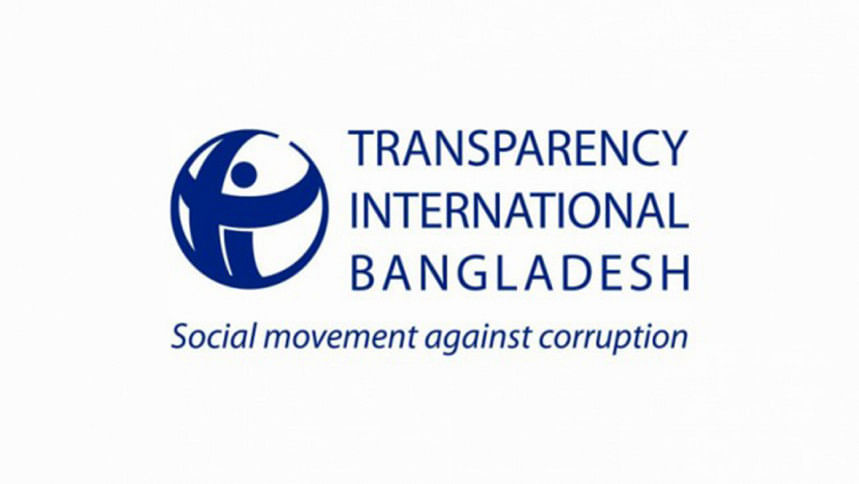It’ll facilitate corruption

Allowing the scope for whitening black money in the name of economic recovery, increasing revenue, investment, and creating jobs will legalise money laundering and facilitate corruption, says Transparency International Bangladesh (TIB).
Such scope is unethical, discriminatory, and anti-constitutional, it said in a statement yesterday, calling for revoking the provision proposed on Thursday by Finance Minister AHM Mustafa Kamal in the budget for fiscal 2020-21.
TIB also expressed frustration as the proposed budget mentioned no steps to check graft and ensure good governance in the health sector, which has weakened because of irregularities, corruption, and mismanagement for long.
The allocation for the sector is also inadequate, it said.
The graft watchdog said the government added two provisions in the income tax ordinance, creating the scope for whitening black money in buying land, buildings, flats, apartments, and for bank deposits, savings certificates, share and bonds, ignoring the conventional law and anti-corruption commitments.
At the same time, the government proposed revoking of the provision that allowed the Anti-Corruption Commission or other authorities to question the source of black money or assets, it said.
In the statement, TIB Executive Director Dr Iftekharuzzaman said, "Such provisions are contradictory to the prime minister's zero tolerance policy against corruption. This is unacceptable. Such provisions have never benefited our economy -- neither in terms of collecting revenue nor increasing investment."
Rather, he said, such policies made the government's anti-corruption stand questionable and promoted unethical practices. These provisions, according to the section 20 (2) of the constitution, are discriminatory against those who earn legally. Through this, the government, in other words, is issuing licence to illegal income and corruption, he added.
The finance minister also proposed a provision in the income tax ordinance -- 50 percent fine to check money laundering through over and under invoicing.
Iftekharuzzaman said such imposition of fines was nothing but a small punishment for a big crime like money laundering. Those who prepared the budget have not thought of its impacts on rule of law and the government commitment towards the international community.
"This will create the scope for a festival of money laundering, instead of controlling it," he said, adding that the government has announced a "corruption-facilitating budget".
He expects the government to step back from the "suicidal provisions".
TIB said there was expectation that the government would significantly increase allocation for the health sector in the wake of the coronavirus pandemic. Apart from a special allocation of Tk 10,000 crore as an emergency fund to address the pandemic, the health budget has been conventional, it said.
"There has to be a policy framework to ensure that there is no way for any corruption in managing the emergency fund," Dr Iftekharuzzaman said.
There has been no reflection of a strategy to reform the health sector, which is why the rate of allocation for the sector has come down to 5.1 percent of the total budget for the next fiscal year from 5.8 percent in the current fiscal year, TIB said.
The same way, there was expectation that the government would take up a wide range of programmes to create jobs and widen safety net programmes to include those who have become jobless and went below the poverty line due to the pandemic, but the government has focused mostly on avoiding VAT and TAX in various industries sectors, it said.
The government should be congratulated for withdrawing duty benefits for importing furnace oil as oil-based power plants are expensive, but there was no announcement on stopping subsidy for the rental power plants, TIB said.
Also, Bangladesh Climate Change Trust Fund should have received more allocation to address the rising number of natural disasters and increasing climate change impacts, but only Tk 100 crore has been allocated. The disaster management and relief ministry also should have received more allocation given the impacts of Cyclone Amphan, but that has actually decreased.
"We expect the government to consider these aspects before passing it [budget]," Dr Iftekharuzzaman added.

 For all latest news, follow The Daily Star's Google News channel.
For all latest news, follow The Daily Star's Google News channel. 




Comments